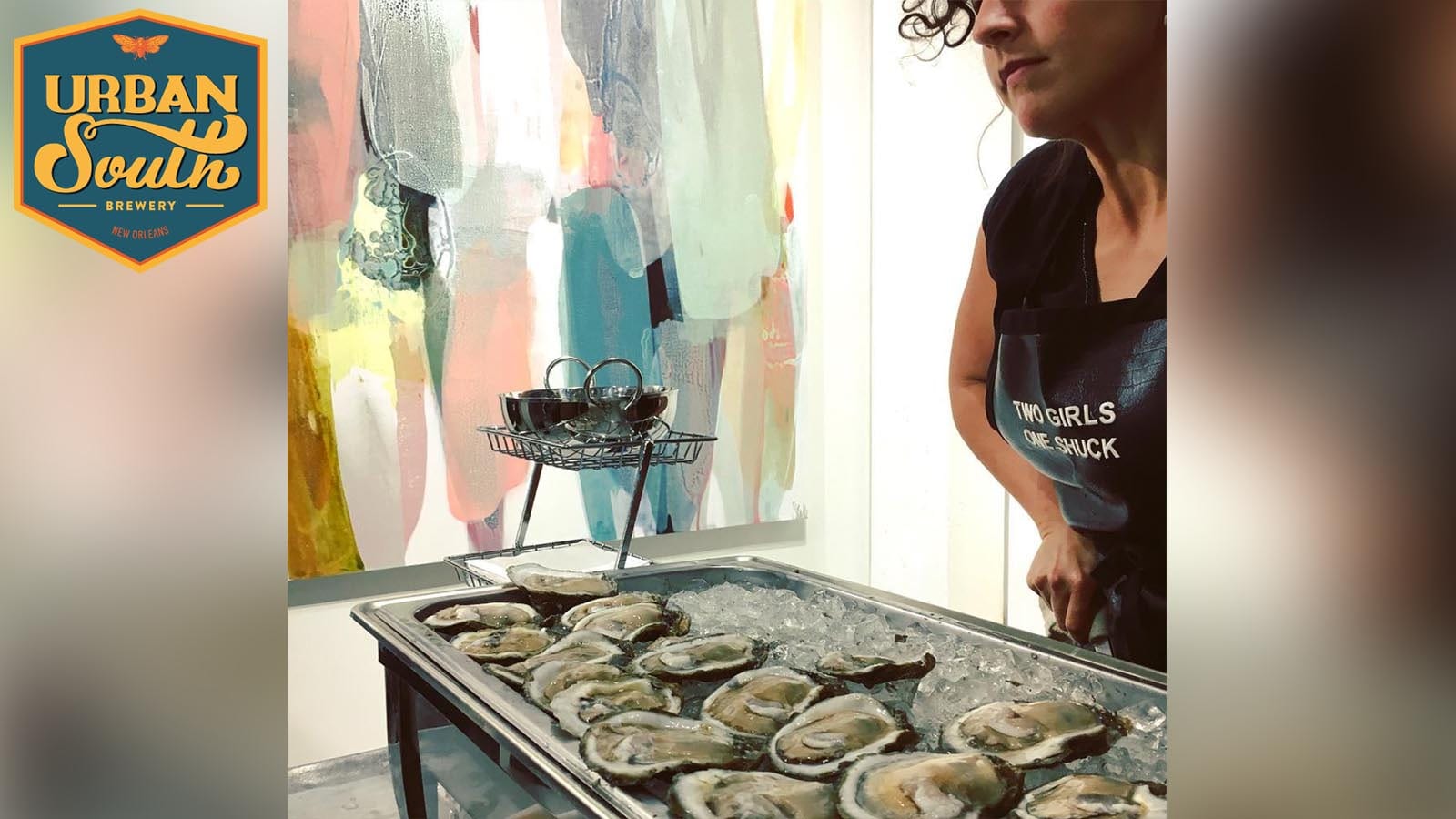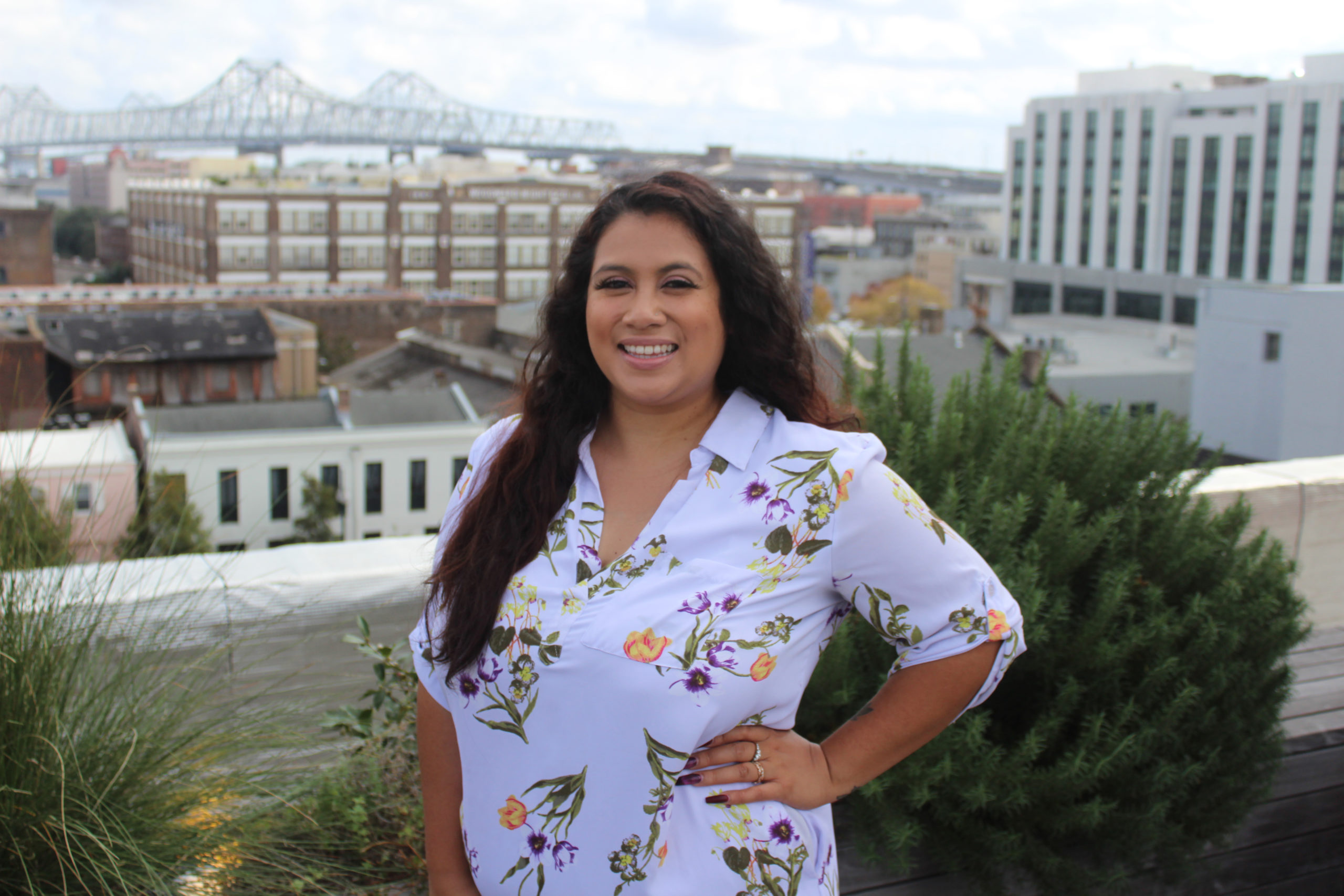Sure, you might giggle when you hear the name Two Girl One Shuck, but this full amenities traveling oyster bar is no laughing matter.
Since 2014, these lovely lady shuckers based out of the Bywater have been convincing folks to swallow their fears and mingle with mollusks.
“At almost every event we have a native New Orleanian who has never had a raw oyster eat one with us,” said Becky Wasden, the owner and founder of Two Girls One Shuck. “I think it’s because of the nurturing factor that we’re women, and we’re very educational, we’re talkative. “There’s also typically a little liquid courage involved, but I’m amazed that for the first time in their lives they’ve felt safe enough, comfortable enough, confident enough to stand and eat oysters with us and it’s the coolest thing ever.”
The idea started back in March 2013, when Wasden was at a crawfish boil with a friend.
“The boys got drunk and they had lots of oysters left unshucked, and she shucked the whole sack,” she said. “That was the first time I’d seen a woman shuck oysters.”
For about a year, Wasden would create oyster bars and her friend would shuck, until one day, that changed.
“She said, ‘This is a lot of work, you need to help me shuck,’” Wasden said. “So I opened up my first oyster November 2013 and loved it immediately. I’m very tactile, I play guitar, piano, I build, so shucking is very natural. Then friends started asking the two of us to do parties and that’s when I realized this could be a viable business. People will actually pay us to do this? Here we are, almost six years in.”
Her latest expansion is Chicks with Dips, a cold seafood and dip option for people who may not be into oysters but still like seafood. It features chilled shrimp, smoked crab dips, caviar, and other fare.
“The best part about Two Girls One Shuck is that we bring everything to you, and people love that,” she said. “Crawfish boils, houses, parades, parties, tons of weddings. We love it because we’re in a different place every day, we get to see beautiful homes, we get to see the most incredible, passionate oyster people. We have non-oyster people hire us and they still enjoy the shuck and jive aspect of us doing anything. So we shuck every oyster live right there on site but I think that’s why people like to hire us. There are two cute girls at your house talking oysters and Louisiana and New Orleans, food, culture, all that kind of stuff.”
At the time the business started, Wasden was working in education and getting her master’s degree, but now, her job is to teach people about oysters. She’s a fountain of knowledge on different species of oysters, where they come from and even when the best time of the year to get oysters is. Her company helps with coastal restoration projects, recycling oyster shells to be used to help bring back the state’s coastline from erosion.
Shucking oysters is literally wrestling little animals to open who don’t want to be exposed to the world.
“The bigger the oyster, the stronger they are because the older they are, the adductor muscle is a lot more firm,” she explained. “So, when you get a really stubborn oyster and people are like staring at you while you’re trying to power through an oyster, that’s really challenging.”
The company is fully run by women, with a team of 24 women who can work as many as six-eight events a week during the year’s busy season. Women also handle the back-of-the-house functions, like marketing, social media and payroll.
Wasden said in an industry that’s male dominated, not once has a man told her she didn’t have a great idea on her hands.
“I have never, since I started this company, had a man look at me and ask me, ‘What do you think you’re doing?’” she said. “Every single guy has looked at me and said, ‘This is amazing, go for it.’ So, I’m very grateful to have had the support of both men and women in this industry.”
The shucking industry is also powered by mostly African American men who have been shucking for decades.
“I’ll be very blunt, I’m a white woman from Utah,” she said. “I’m very fortunate, I’ve had an amazing education, I’ve had an excellent life, I’ve had great work opportunities. A part of me was very nervous that we would be taking away a piece of New Orleans from heavily African American males. They have been the shuckers of New Orleans for decades and decades. I’m just lucky that there was room for us in the market and every black shucker that I’ve met mentored me, made me a better shucker and supported me 100% every time.”
She also said the landscape of the shucking scene has changed since her company’s arrival.
“I feel like since we started growing in the city I’ve seen more female shuckers in a lot of the restaurants and oyster bars around town, so that’s very exciting,” she said. “The best part is here in New Orleans, every time we do a party, a woman walks up to us that lives here or has grown up here and she’s like, ‘Oh, I can shuck oysters. I do it at home, for family or for small parties.’ So it’s very cool that it’s been embedded in the culture for a long time. I think I just brought it to the forefront.”







